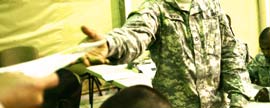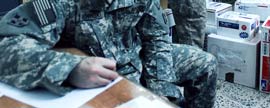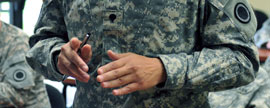Okay. You’ve got a platoon. All the equipment and the people are there. They seem to be fully mission capable (FMC) and technically and tactically proficient. Then you ask the question. “Where’s the SOP?” If you’re lucky, they’ve got one and they’ll hand it to you, or someone will get it for you. If you are very lucky, it’s up-to-date and clearly written. But what if you aren’t lucky? If you aren’t lucky a little bit then the thing only needs to be tweaked. A little updating and some jargon changes and everything will be alright. (Not counting that if the SOP isn’t up-to-date the question must be asked, “What standard, if any, have your people been training to in the meantime?”) If you are really unlucky then there is no SOP or what you’ve been given is hopeless and you have to start from scratch. This is an amazing thing about the Army. As important as an SOP is, there is strikingly little guidance on how to write an SOP, what’s in a good one, or all the myriad types of SOPs that there can be. This document is hoping to help you out with the first two questions with this paper. The third question is of great scope and it’s chosen to keep it’s focus here to the TACSOP, or Tactical Standing Operating Procedures. The Purpose of a TACSOP: This is the simplest question to answer. What is the SOP for? It’s to set a standard for all of the things that the platoon must do on every mission. When everyone knows the standard and can work to it, then everyone is on the same sheet of music and everyone knows what he/she is supposed to be doing at any given time. The benefits of this are greater efficiency, faster operations, safer operations, less down-time (non-mission capable down-time that is), and more down-time (relaxing because the job is done and done right). In short, your people will be happier, your superiors will be happier, and you won’t be managing clusters. You’ll be leading troops.
NOTE: This document is in MS Word format













